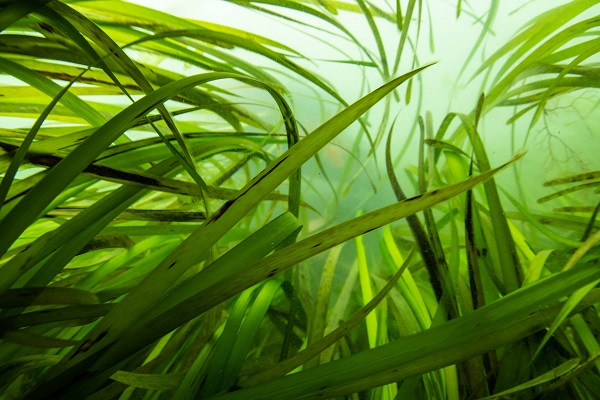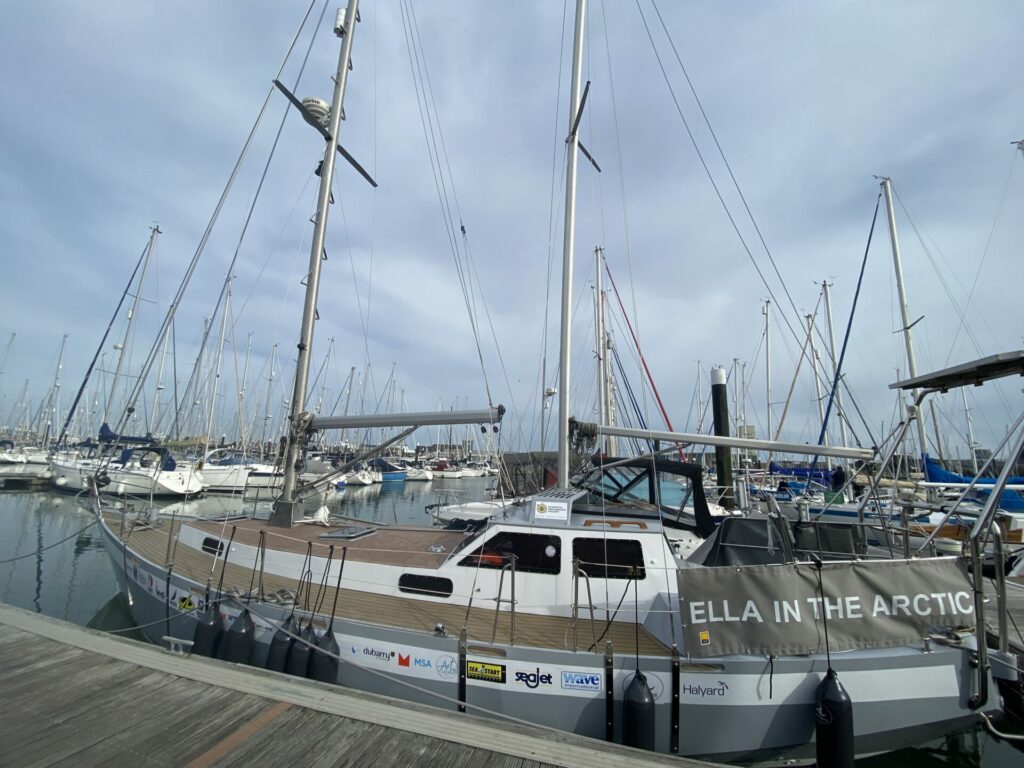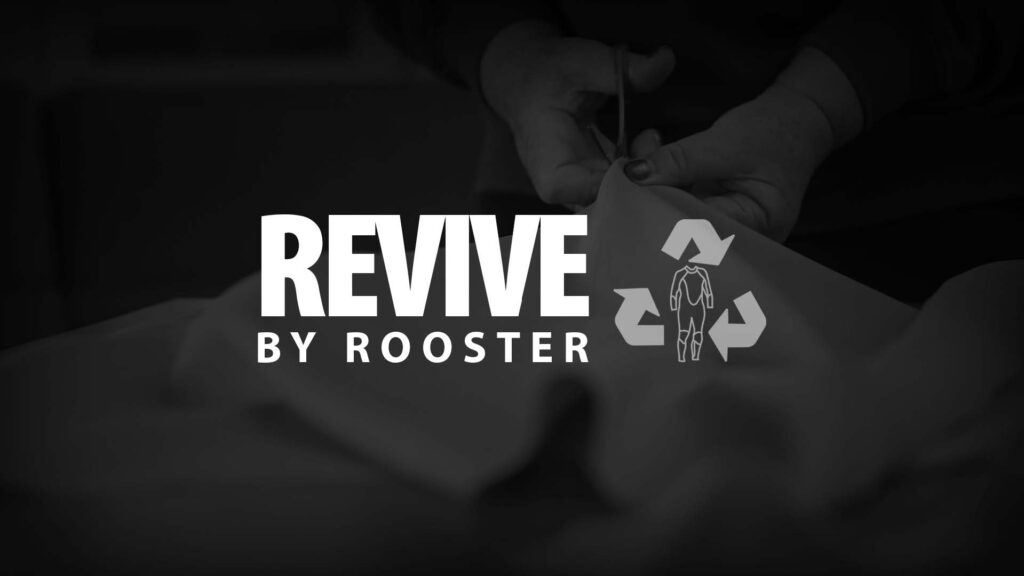Scuba divers have collected more than half a million seeds from healthy seagrass meadows around Osborne Bay, Yarmouth and Bouldnor in the Solent for replanting in parts of the Solent where seagrass has been lost or degraded.
More seed collection dives will take place in Looe and Falmouth in Cornwall this month. It is part of England’s largest seagrass planting programme under the Natural England-led LIFE Recreation ReMEDIES partnership.
The collected seeds will be stored and cared for at the partnership’s special cultivation laboratory in the National Marine Aquarium, Plymouth before being bagged by volunteers, transported back to the Solent and returned to the seabed over winter. 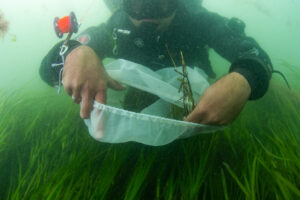
The Ocean Conservation Trust (OCT) is leading this restoration work on behalf of the ReMEDIES partnership and has already planted seagrass seeds across almost one hectare of seabed in the Plymouth Sound and Estuaries Special Area of Conservation as part of ReMEDIES. The ambition is to plant a total of four hectares in the Solent Maritime Special Area of Conservation, with the exact planting site to be decided.
Fiona Crouch, ReMEDIES Project Manager for Natural England, said: ‘This is an exciting moment for our restoration work in the Solent and a real journey for our seeds as they make their way from the seabed to the lab and, eventually, back to the seabed again.
‘As well as restoring seagrass, our partnership is exploring the pressures that seagrass beds are facing from recreational activities in the marine environment. By working together to reduce the impact that these activities can have on the sensitive seabed, we hope to minimise further loss.’
Mark Parry, Development Officer at the Ocean Conservation Trust, said: ‘We are proud to be the restoration lead in the ReMEDIES partnership, harvesting, growing and replanting seagrass seeds to restore large areas of habitat and promote this amazing ecosystem’s recovery.
Seagrass meadows provide homes for juvenile fish and protected creatures like seahorses and stalked jellyfish. They also help to stabilise the seabed, reduce coastal erosion, clean surrounding seawater, and capture and store carbon. But seagrass is now present in only half of the areas of the UK where it was once recorded, with factors including wasting disease, pollution and physical disturbance contributing to its decline.
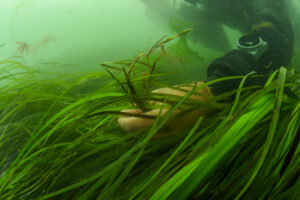 ReMEDIES is working with World Wildlife Fund, Swansea University, Project Seagrass, Hampshire and Isle of Wight Wildlife Trust, and Isle of Wight Estuaries Officer to ensure seagrass restoration efforts in the Solent are coordinated for the greatest impact. Project Baseline UK has also been involved in the seed collection dives.
ReMEDIES is working with World Wildlife Fund, Swansea University, Project Seagrass, Hampshire and Isle of Wight Wildlife Trust, and Isle of Wight Estuaries Officer to ensure seagrass restoration efforts in the Solent are coordinated for the greatest impact. Project Baseline UK has also been involved in the seed collection dives.
In addition to seagrass restoration, volunteers for ReMEDIES and Hampshire and Isle of Wight Wildlife Trust are observing recreational activities in the Solent during August and September. This will give insight into the pressures that seagrass beds are under from shore- and water-based leisure activities such as boating.
ReMEDIES has also worked with the harbour commissioners at Yarmouth to install Advanced Mooring Systems (AMS). These boat moorings are specially designed to have a reduced impact on the seabed. There are plans for more to be installed in Yarmouth this year and Cowes Harbour Commissioners are currently looking at suitable AMS locations for Cowes.
To find out more, visit the ‘Initiatives and Projects’ page on The Green Blue website or saveourseabed.co.uk.
Photo Credits: Project Baseline UK

